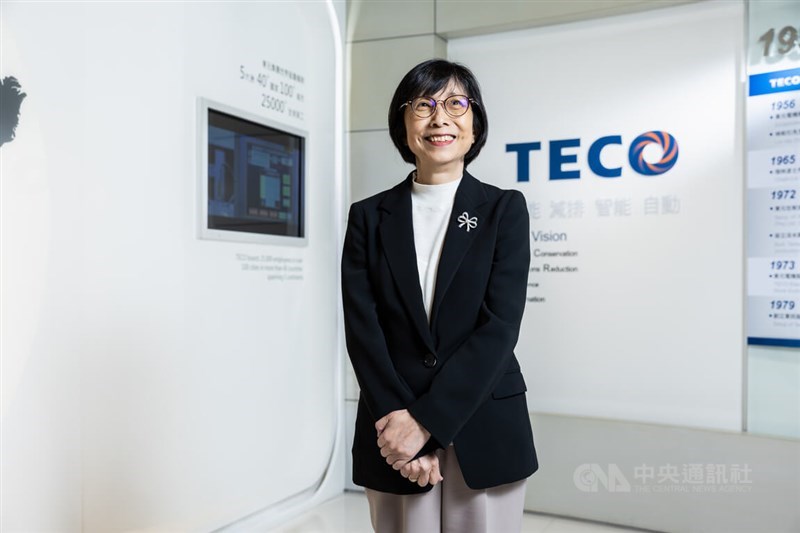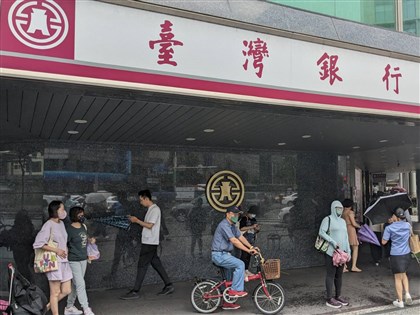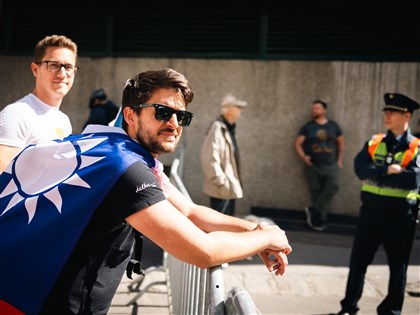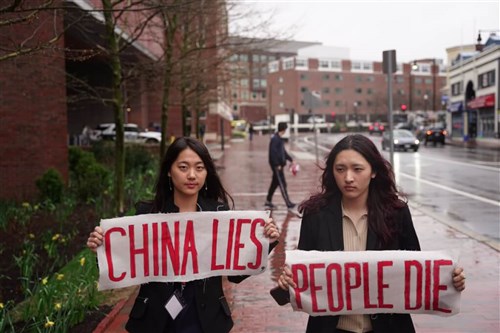INTERVIEW/Internal carbon pricing, use of renewable energy part of TECO green effort

Taipei, May 7 (CNA) At a time when Taiwan's carbon fee rate remains in limbo, a leading local electric motor manufacturer, which voluntarily adopted its own internal carbon price, emphasized that sustainability requires everyone in Taiwan to be aware of related issues "rather than expecting others to take responsibility."
The 68-year-old TECO Electric & Machinery, also a major home appliance producer in Taiwan, has a much higher internal carbon price than the government's proposed carbon fee, according to company chairperson Sophia Chiu (邱純枝) during an interview with CNA.

In 2023, the company introduced internal carbon pricing (ICP) -- set at NT$1,600 (US$49) per metric ton of carbon emissions.
Under an ICP scheme, a company voluntarily sets a price on its carbon emissions and incentivizes its departments to cut emissions. Other Taiwanese corporations that have implemented ICPs include Delta Electronics, which has a price of US$300 per metric ton, Taiwan Semiconductor Manufacturing Co. (TSMC), Taiwan Cement and Formosa Plastics Group.
As Taiwan is set to start collecting carbon fees from big emitters in 2025, Chiu said that TECO understands the logic behind carbon fee levying, which follows the principle "the polluter pays."
That is "no different from air pollution control fees," she added, referring to the fees on gasoline fuel introduced in 1995.
An internal carbon price and greening business
"There is debate on whether NT$300 or NT$100 per metric ton should be collected, but both are relatively cheap compared to our NT$1,600 per metric ton," Chiu said, adding that fees collected by the company amounted to more than NT$100 million in 2023 and will be used for decarbonization plans.
Although TECO is not one of 550 big emitters in Taiwan that emit more than the equivalent of 25,000 metric tons of carbon dioxide a year and thereby liable for carbon fees, it took it upon itself to play along.
TECO has made a pledge to cut carbon emissions by 34 percent by 2025 and 50 percent by 2030, Chiu said.
However, she does not believe the cost should to be borne solely by enterprises.

"Enterprises can afford the fees, sure, but if the awareness of sustainability is not cultivated among the public...any sustainability policy will be difficult to implement, regardless of who is in power," Chiu warned.
To make the company more sustainable, the TECO management team did not stop at implementing an ICP.
Its three business groups -- mechatronics and automation, intelligent energy, and air conditioning and intelligent life (appliances) -- are all geared toward seeking out future business opportunities, with a focus on a greener and more sustainable life.
In addition to the sale of green solutions and products, TECO has also streamlined manufacturing processes, adopting more energy-efficient and less polluting approaches and undertaking turnkey projects related to renewable energy, Chiu said.
For example, the company completed a 60-MW energy storage system for Taipower in Longtan, Taoyuan, in January.
Using renewable energy
At the same time, the energy the corporation uses also has to be sustainable.
"We are committed to ensuring 30 percent of the energy we use is renewable by 2030," Chiu said, adding that along with installing rooftop solar panels at its factories in Taiwan, China, Italy, Malaysia and the United States, virtual power plants (VPPs) will also be introduced.
A VPP is a network that aggregates renewable energy producing or storage systems, and is a business TECO taps into with its energy-saving equipment and platforms.

However, when it comes to renewable energy, the TECO head expressed the same concern over public awareness.
"The government has been trumpeting renewable energy, and industries are well aware of its importance, but the general public doesn't feel the urge or simply doesn't support it," she said, citing public opposition to electricity rate increases.
There is a lack of understanding among the public that sustainability requires some kind of "sacrifice" now, which means paying more for electricity and being more careful about energy use, she argued.
Outlook for the country's energy policy
Regarding Taiwan's energy policy, Chiu said from the perspective of enterprises, "we hope the policy is realistic and pragmatic."
"For example, the nuclear power issue has become too political," she added, without taking a stance on the matter.
Highlighting that Taiwan has good conditions to develop renewable energy, Chiu underlines the need for energy storage systems, which she believes will also reduce criticism of the government for power outages due to various causes.

"The sense of crisis or need [of storing electricity] in case of an emergency should be promoted," she said. "If you look at California, it uses more renewable energy than any other state in the U.S., they have in recent years completed a battery energy storage system of 600 megawatts."
To further develop green energy, which is inherently intermittent and "relatively unstable," grid resilience with enough storage systems is a necessary support measure, as this helps to avoid electricity abandonment when consumption does not keep up with green energy generation, Chiu said.
The government is always a step behind industry, as it has more things to weigh in its decisions, she added.
For TECO, "we have already moved forward in innovating our products and total solutions in a way that creates, stores and uses energy efficiently, which can easily come in a wholesome package," Chiu said.
![Bank of Taiwan's ratio of exposure to China over net worth falls sharply]() Bank of Taiwan's ratio of exposure to China over net worth falls sharplyThe ratio of the Bank of Taiwan's exposure to China over its net worth has fallen sharply to the current 3.42 percent as the bank has been keen to reduce its reliance on the Chinese market, according to the bank.05/18/2024 01:38 PM
Bank of Taiwan's ratio of exposure to China over net worth falls sharplyThe ratio of the Bank of Taiwan's exposure to China over its net worth has fallen sharply to the current 3.42 percent as the bank has been keen to reduce its reliance on the Chinese market, according to the bank.05/18/2024 01:38 PM![Hungarian MP advocates Taiwan as better alternative to China]() Hungarian MP advocates Taiwan as better alternative to ChinaHungarian Member of Parliament Tompos Márton said he considers Taiwan a better alternative to China as a strategic partner in a Sunday interview with CNA.05/13/2024 06:51 PM
Hungarian MP advocates Taiwan as better alternative to ChinaHungarian Member of Parliament Tompos Márton said he considers Taiwan a better alternative to China as a strategic partner in a Sunday interview with CNA.05/13/2024 06:51 PM![A discussion with Cosette Wu, the woman behind the Harvard speech disruption]() A discussion with Cosette Wu, the woman behind the Harvard speech disruption"You robbed Hong Kongers of the most fundamental freedom and devastated their democracy. Now in my country Taiwan, you sought to do the same." A yell from the audience disrupts the Chinese Ambassador to the United States Xie Feng's (謝鋒) speech at Harvard University that marked the opening of the Harvard Kennedy School China Conference 2024 on April 20.04/26/2024 11:25 PM
A discussion with Cosette Wu, the woman behind the Harvard speech disruption"You robbed Hong Kongers of the most fundamental freedom and devastated their democracy. Now in my country Taiwan, you sought to do the same." A yell from the audience disrupts the Chinese Ambassador to the United States Xie Feng's (謝鋒) speech at Harvard University that marked the opening of the Harvard Kennedy School China Conference 2024 on April 20.04/26/2024 11:25 PM
- Cross-Strait
Taiwan to support chemical producers amid China's anti-dumping probe
05/19/2024 09:30 PM - Culture
Taiwanese films resonate with Spanish film fans at Barcelona festival
05/19/2024 09:18 PM - Society
Rain to fall over Taiwan during presidential inauguration day: CWA
05/19/2024 09:12 PM - Politics
Lai pledges to continue on democratic path in reception remarks
05/19/2024 08:21 PM - Politics
At rally, TPP accuses DPP of 'bounced check' to Taiwanese people
05/19/2024 08:12 PM



